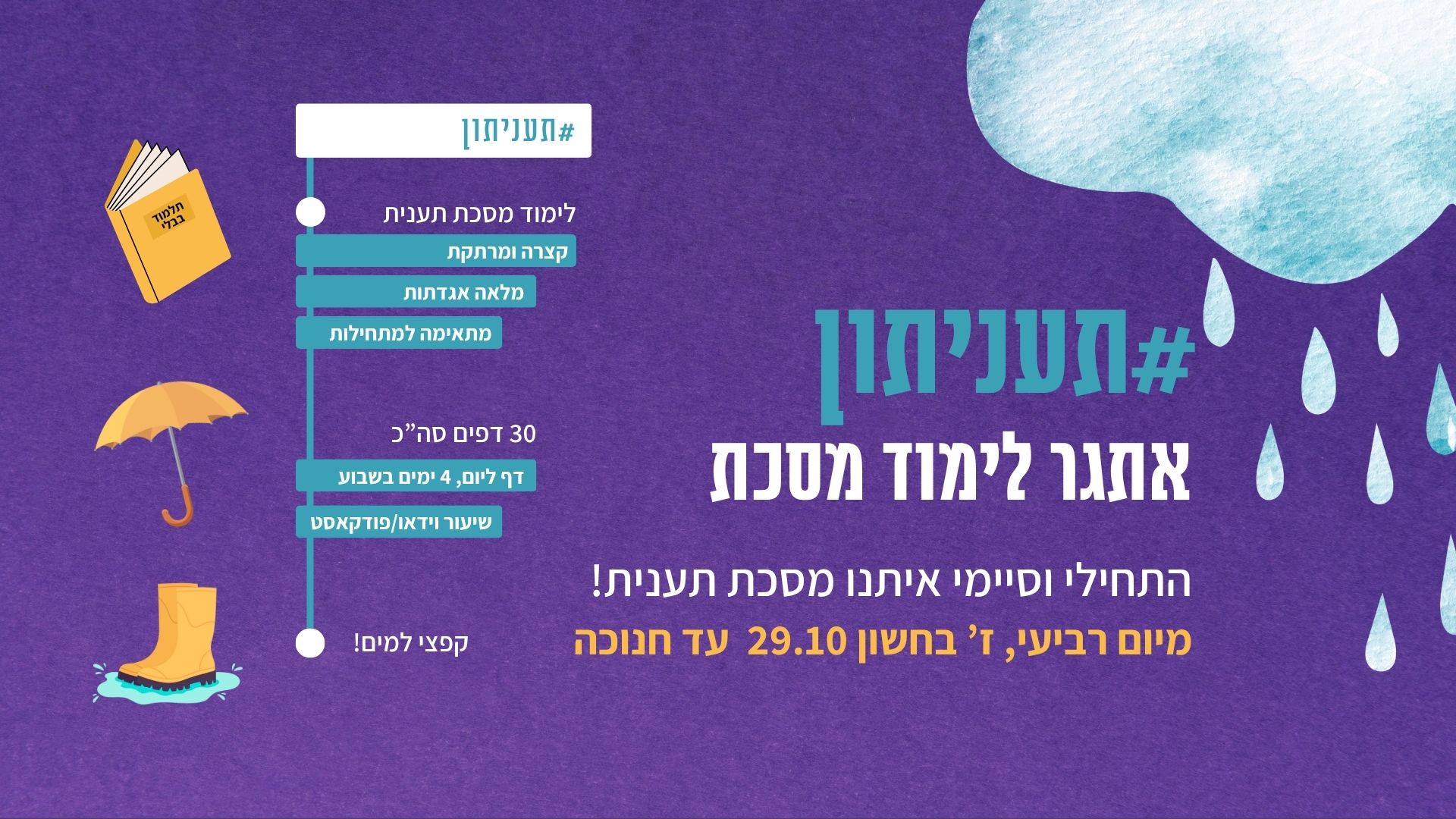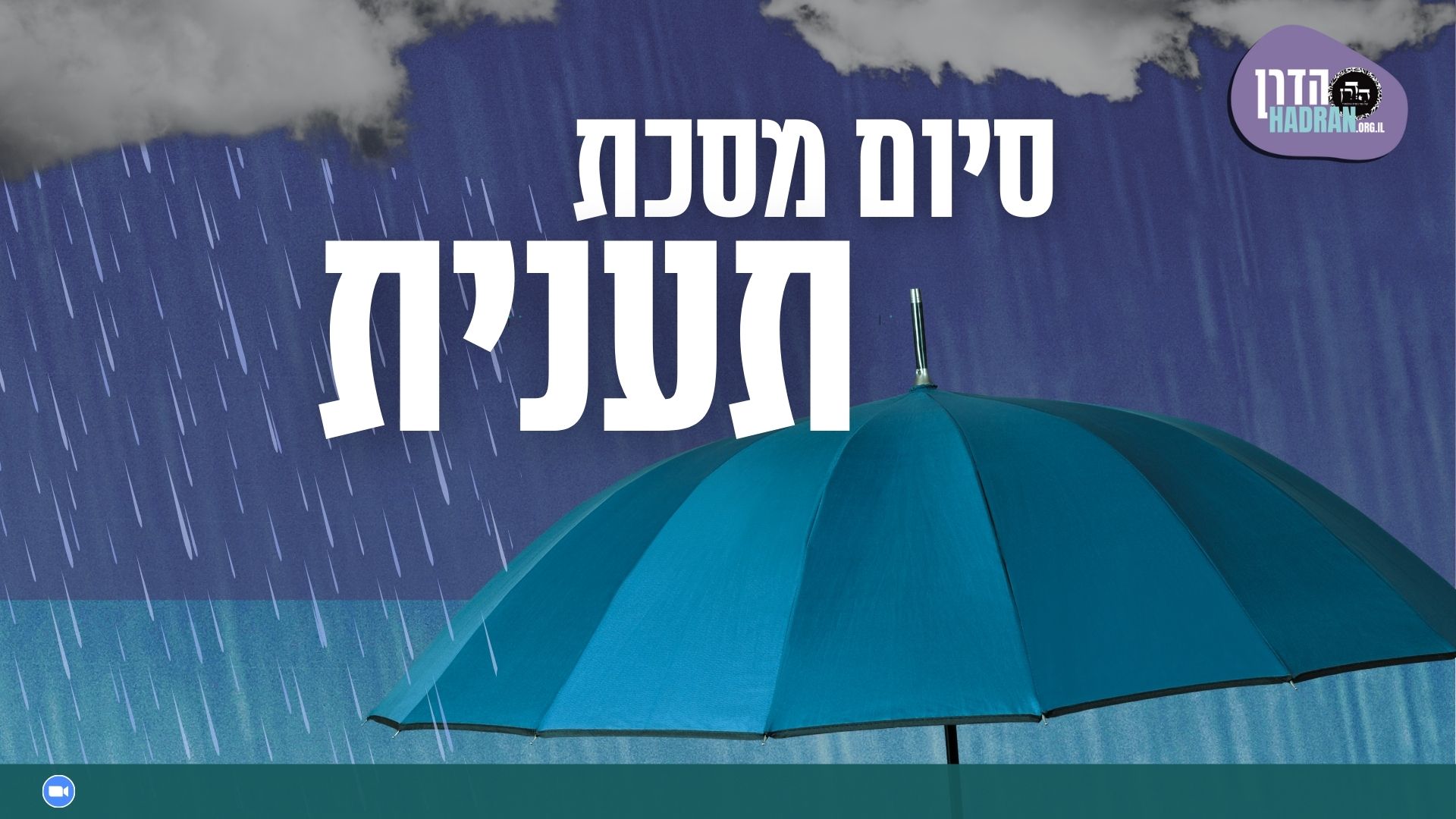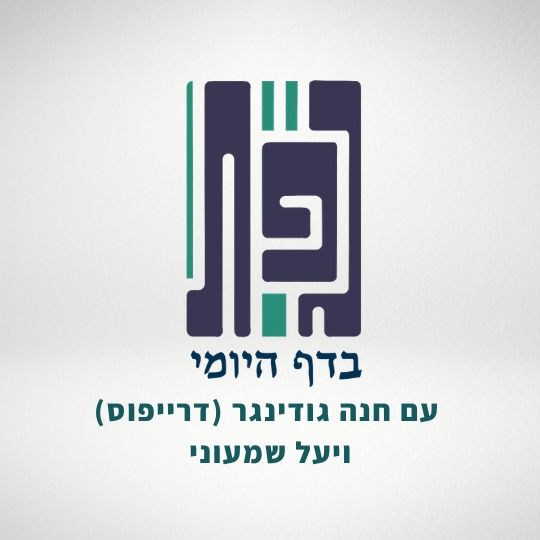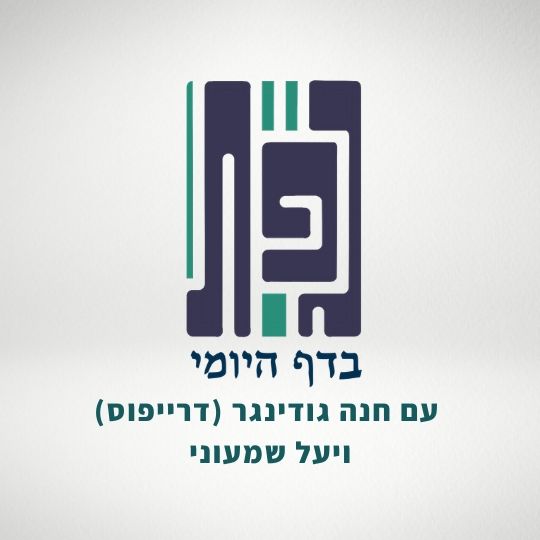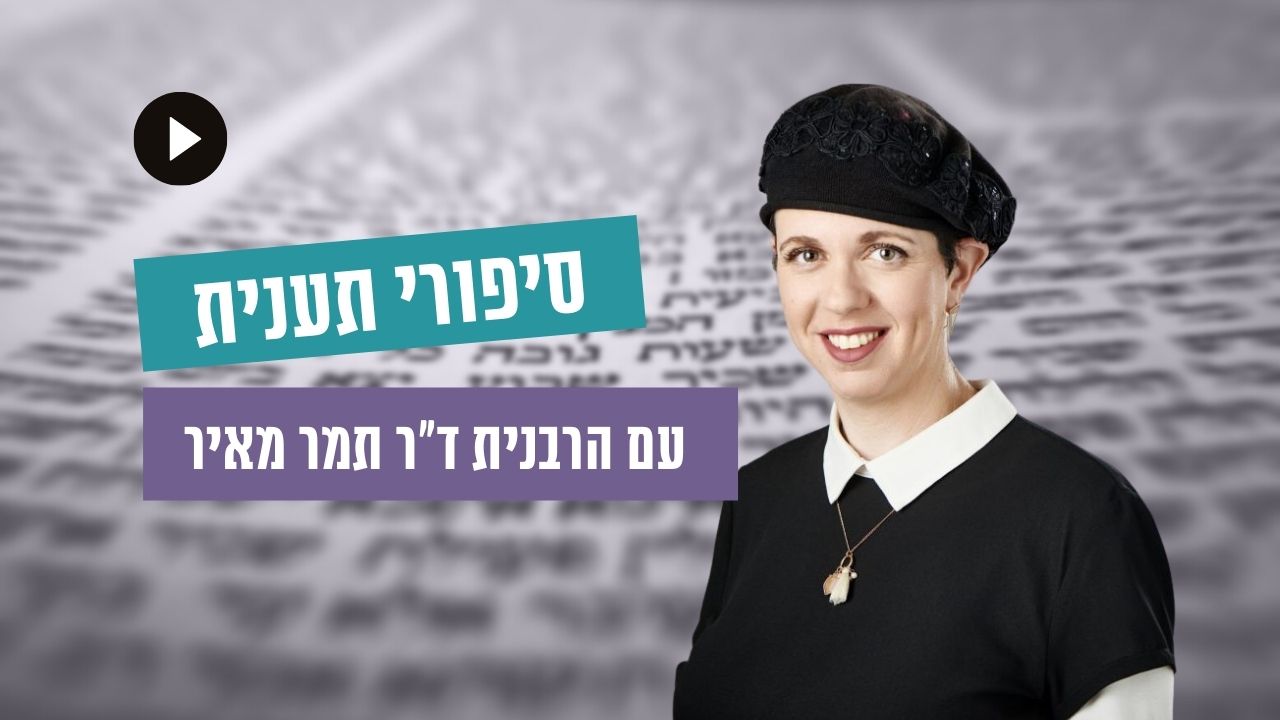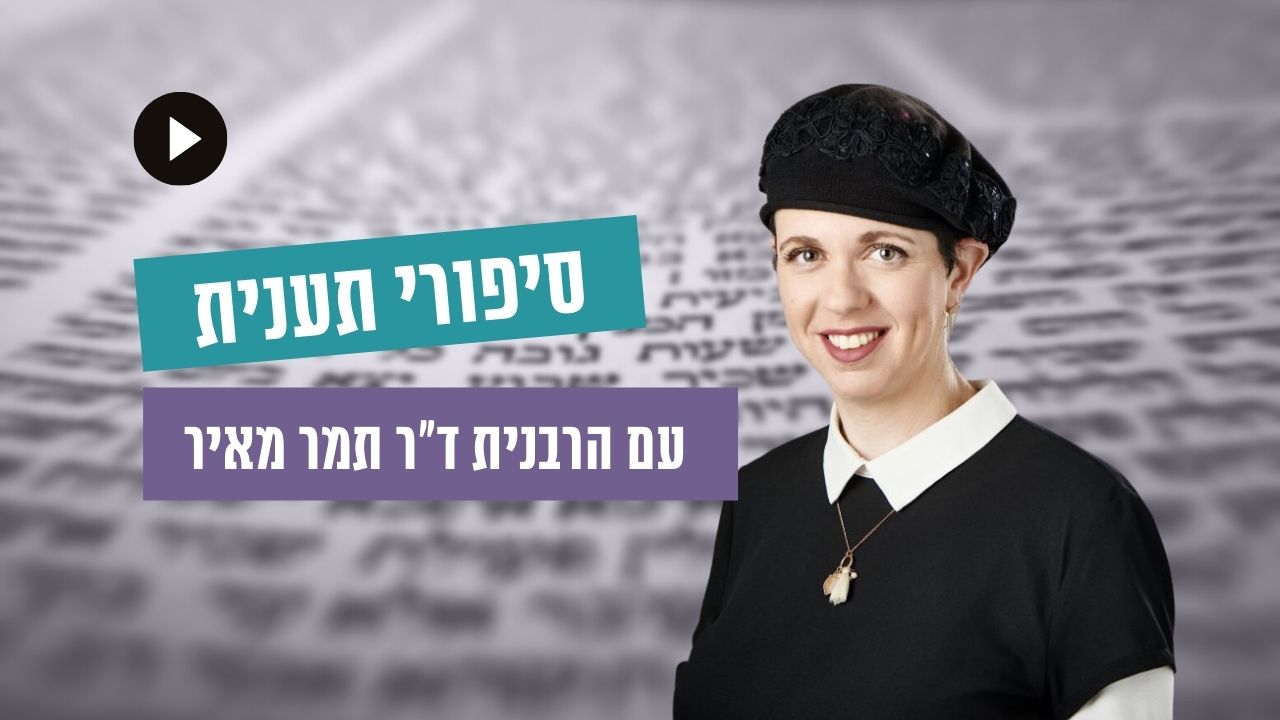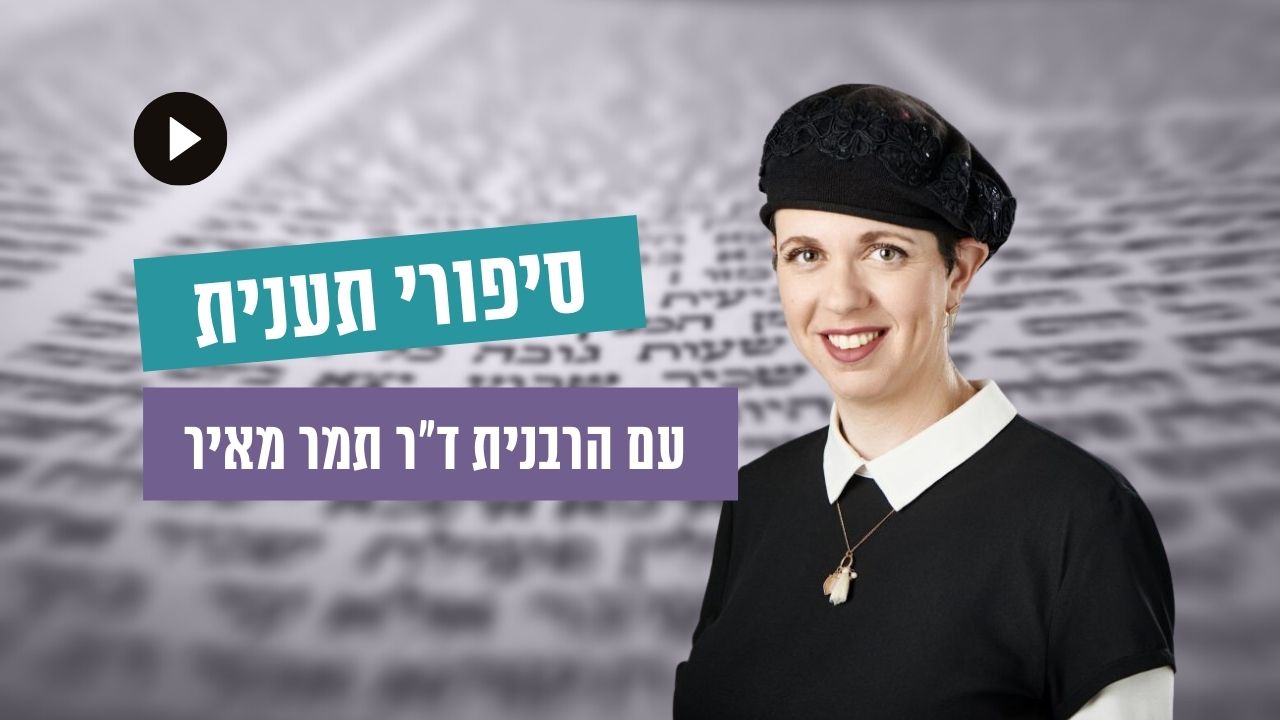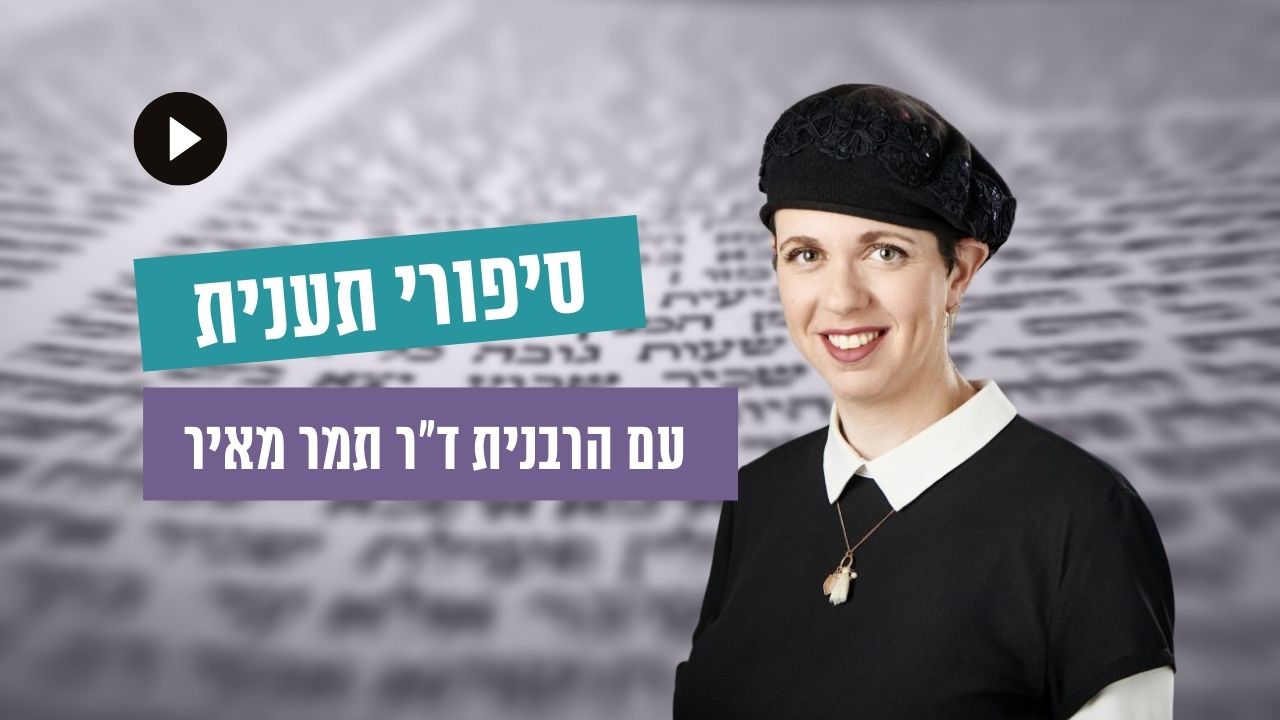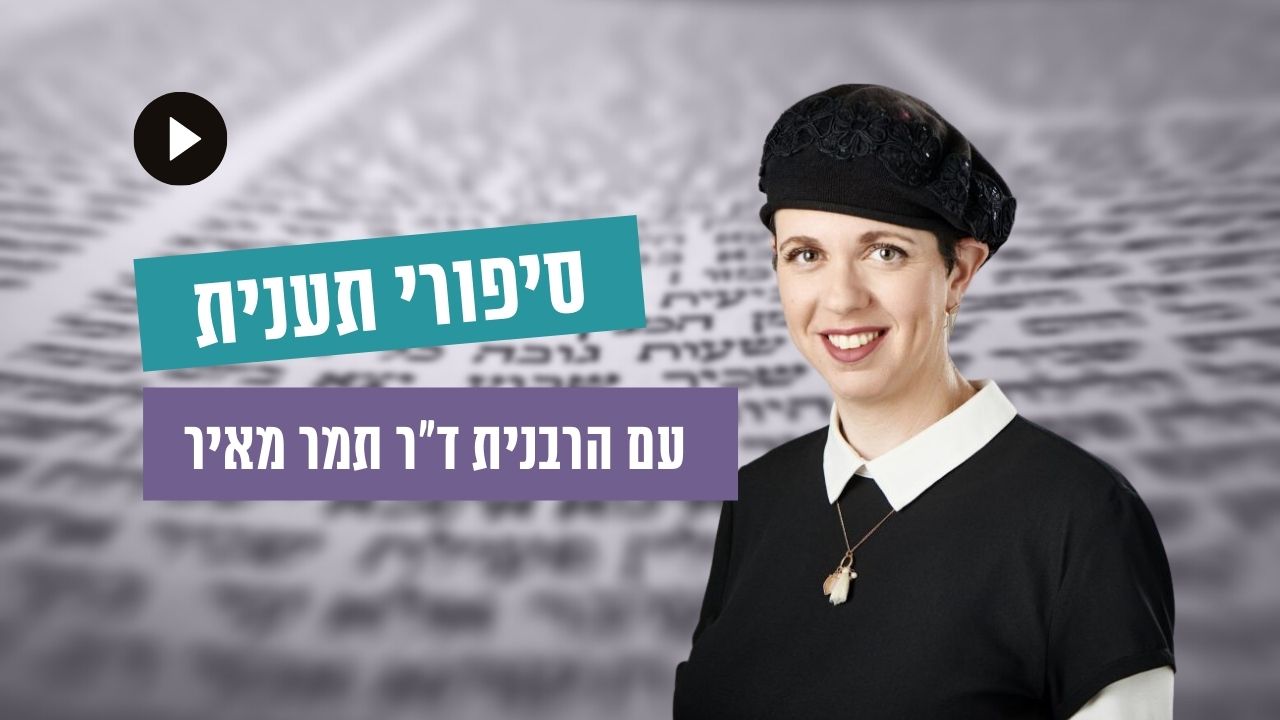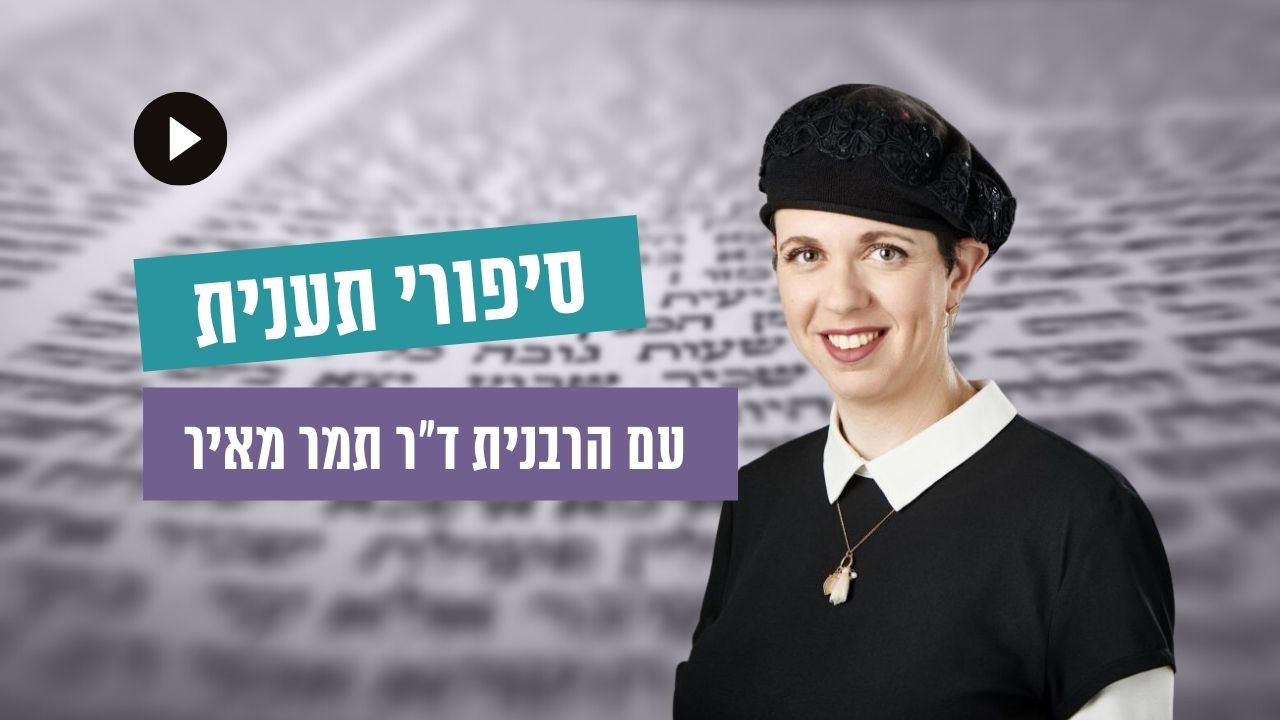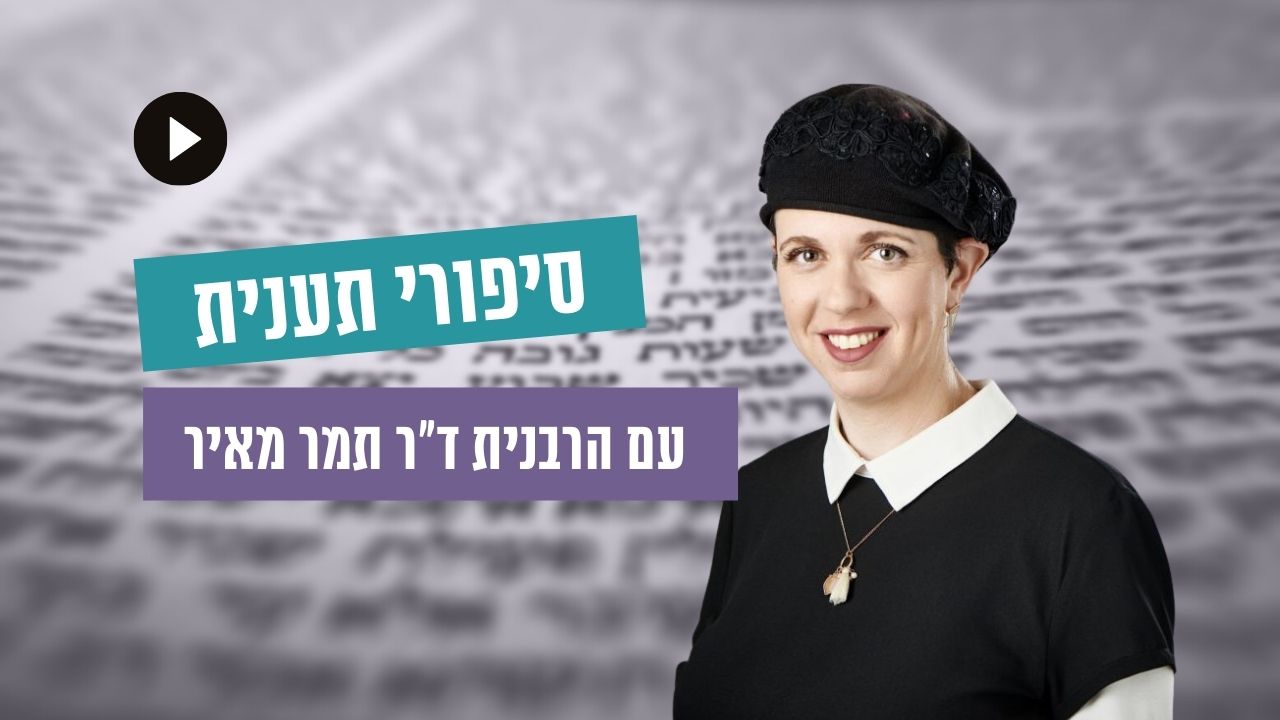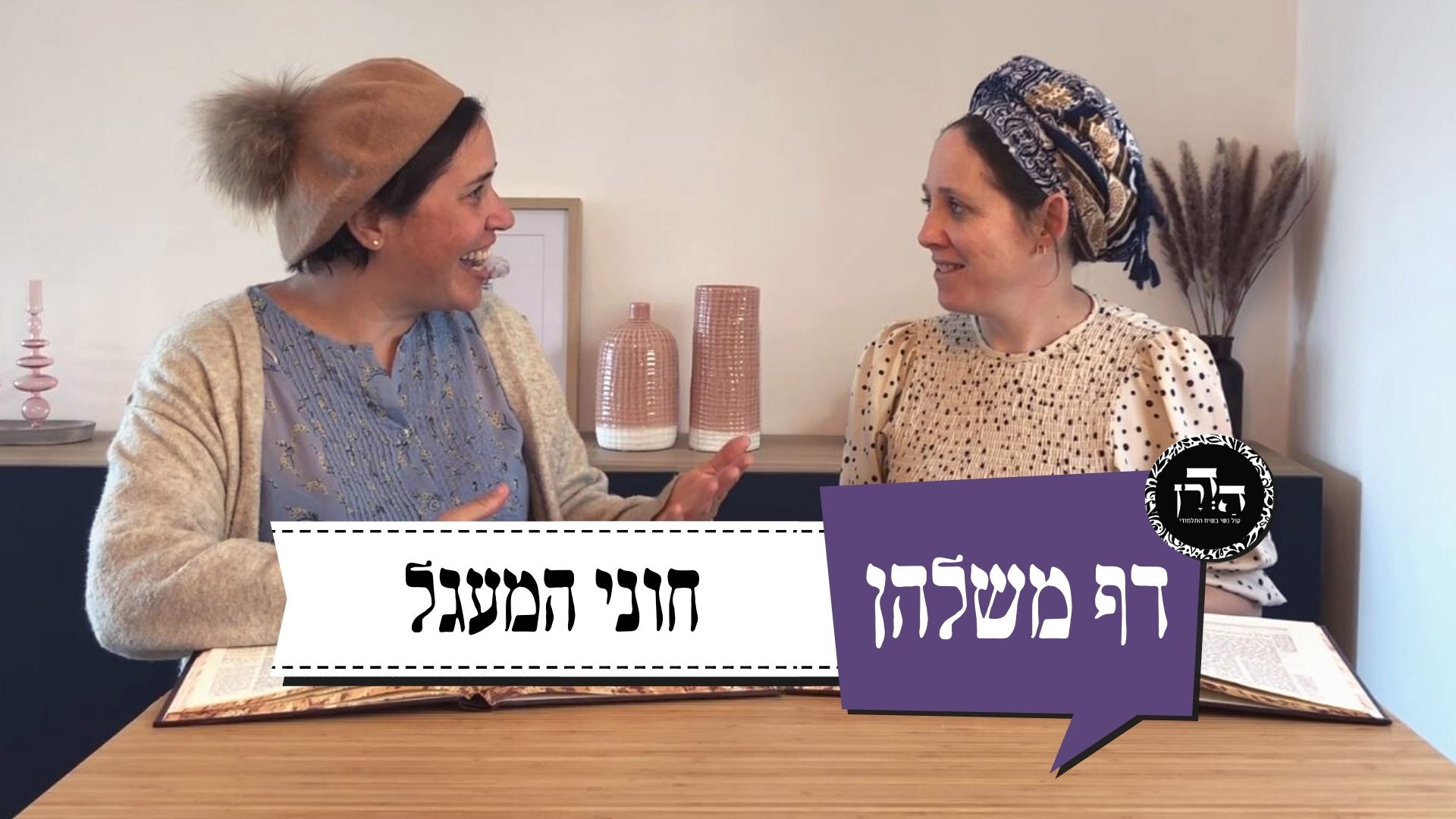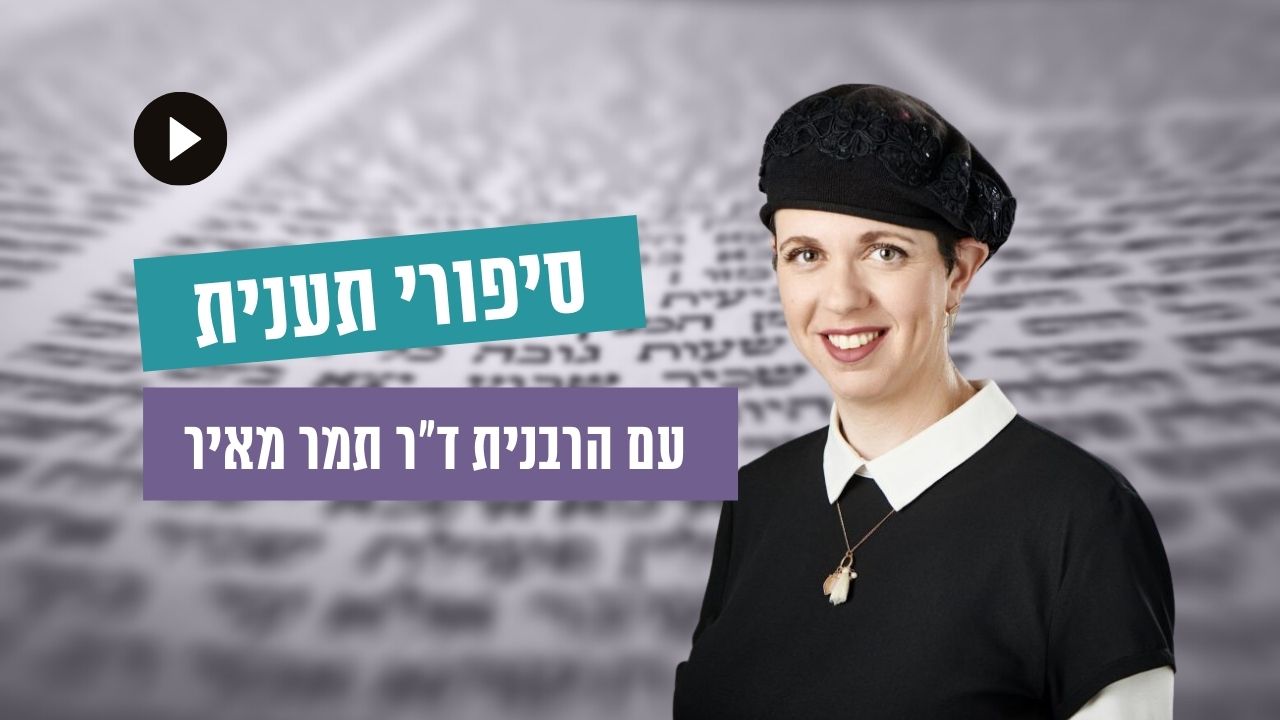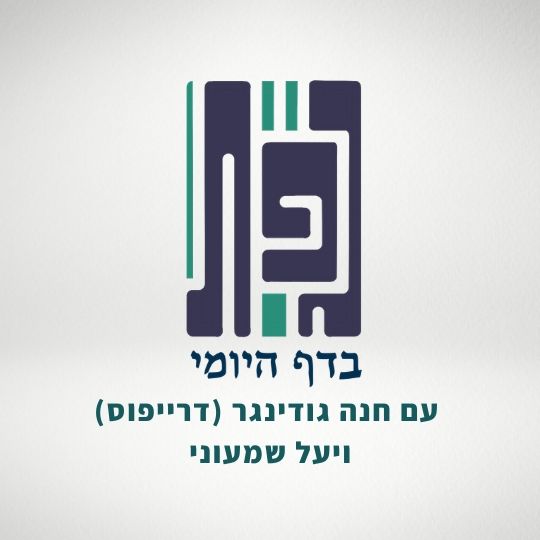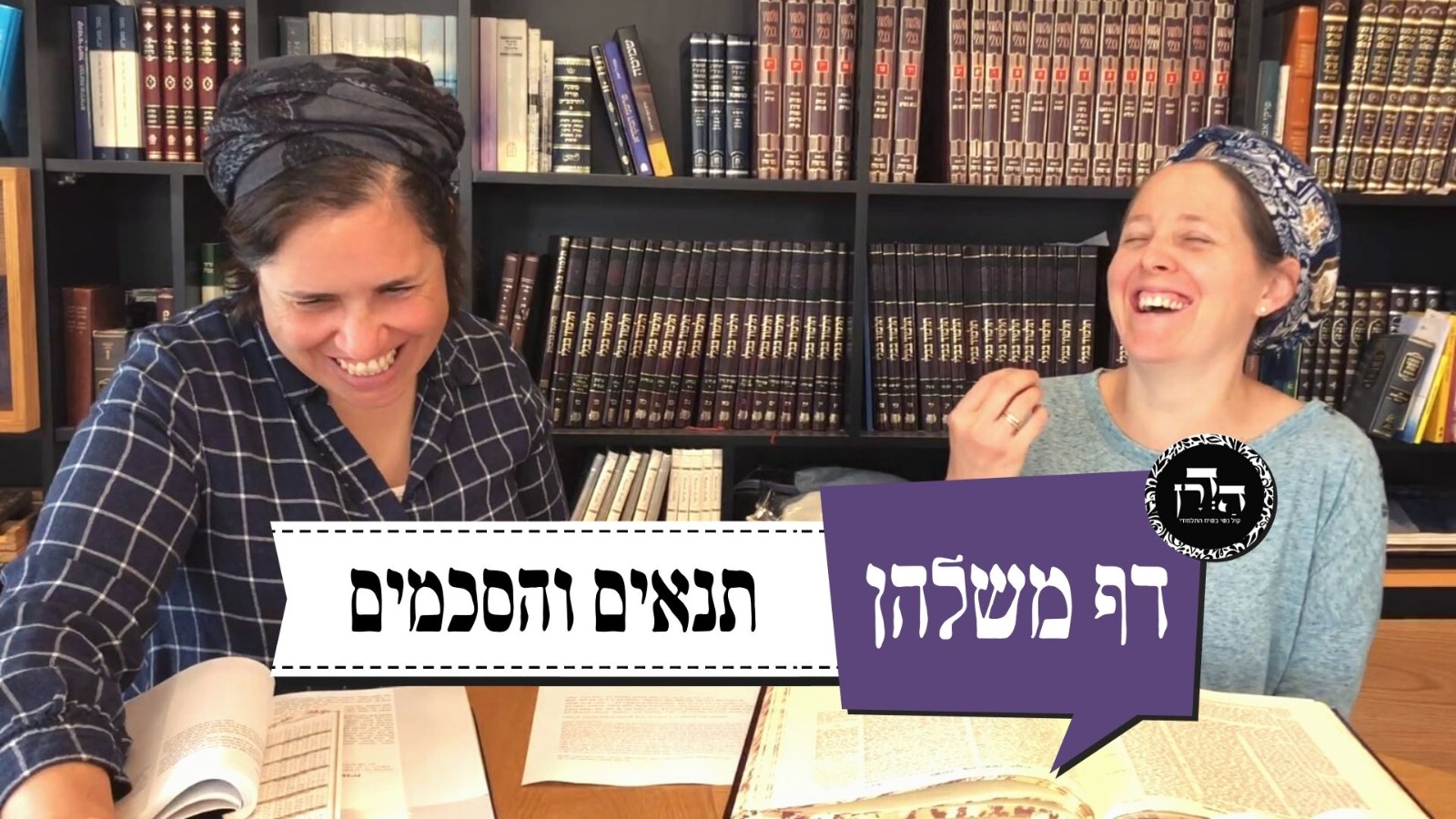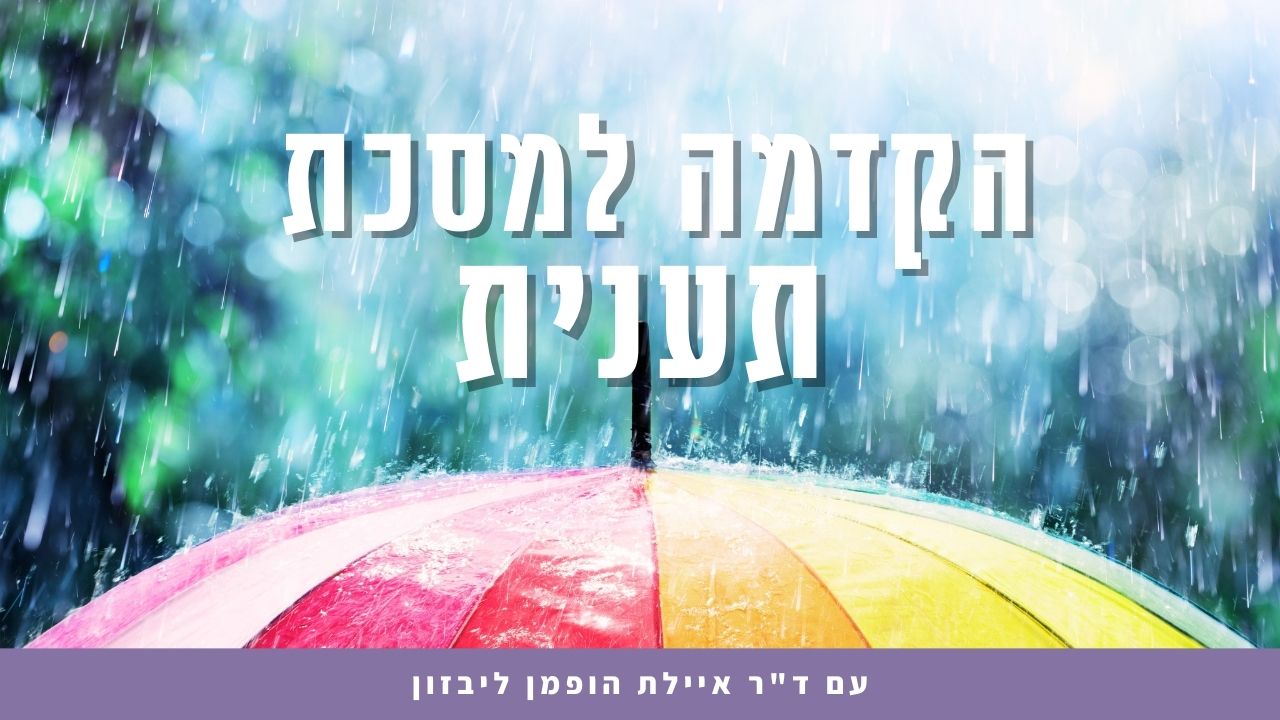הלימוד החודש מוקדש לרפואת פיליס הכט, גיטל פעשא בת מאשה רחל על ידי חברותיה הרבות שאוהבות ומעריכות אותה.
רוצה להקדיש שיעור?

תקציר
מה זה אומר "תענית לשעות” ואיך מגביל רב חסדא את הדין של תענית שכזה? האם זה נחשב תענית אם לא צמים עד שיקעה? רב חסדא אמר שלא והגמרא מביאה כמה מקורות להקשות על דבריו. שמואל אומר שצריך לקבל תענית יחיד על עצמו לפני. מתי? שמואל אומר בתפילת מנחה ורב אומר מזמן מנחה (ומבינים ממנו שאפשר אפילו כמה ימים לפני). רב יוסף מנסה להוכיח מדברי מגילת תענית את שיטת שמואל אבל הגמרא דוחה כי יש ויכוח לגבי הנוסח של דברי מגילת תענית. תענית יחיד – האם אסור בחמשת העינויים של יום כיפור כתענית ציבור או לא? במה זה תלוי? האם יש תענית ציבור בבבל ומה המשמעות של משפט זה? האם אפשר לדחות תענית יחיד ליום אחר במקרה הצורך? מה ההבדל בין תענית חלום לשאר התעניות בעניין הזה? המשנה מסבירה את החומרה של הסדרה השנייה ושלישית של תעניות. מה אסור בימים אלו? מה קורה אם לאחר כל הסדרות של תעניות (שלוש סדרות – שלוש עשרה ימים של צום) לא קיבלו תשובה? למה אסור בתעניות אלו במלאכה? עורכים השוואה בפסוק ביואל א:יד בין תענית לחג.
כלים
הלימוד החודש מוקדש לרפואת פיליס הכט, גיטל פעשא בת מאשה רחל על ידי חברותיה הרבות שאוהבות ומעריכות אותה.
כלים
העמקה
רוצה להבין מה באמת קורה מתחת לפני השטח של הסוגיה?
שיעורים, פודקאסטים והרחבות של מיטב המורות שלנו יפתחו לך עוד זוויות וכיווני חשיבה.
חדשה בלימוד הגמרא?
זה הדף הראשון שלך? איזו התרגשות עצומה! יש לנו בדיוק את התכנים והכלים שיעזרו לך לעשות את הצעדים הראשונים ללמידה בקצב וברמה שלך, כך תוכלי להרגיש בנוח גם בתוך הסוגיות המורכבות ומאתגרות.
פסיפס הלומדות שלנו
גלי את קהילת הלומדות שלנו, מגוון נשים, רקעים וסיפורים. כולן חלק מתנועה ומסע מרגש ועוצמתי.
תענית יב
הָא דְּאָמְרַתְּ מִתְעַנִּין לְשָׁעוֹת — וְהוּא שֶׁלֹּא טָעַם כְּלוּם עַד הָעֶרֶב. אָמַר לֵיהּ אַבָּיֵי: הָא תַּעֲנִית מְעַלַּיְיתָא הִיא! לָא צְרִיכָא — דְּאִימְּלַךְ אִימְּלוֹכֵי.
The halakha is that which you said, that one may fast for a few hours, provided that one took a fast of a few hours upon himself, and that he fasted and did not taste anything until the evening. Abaye said to Rav Ḥisda: This ruling is obvious, since it is a full-fledged fast, as one ultimately fasts the entire day. Rav Ḥisda answered: No, it is necessary to say this halakha in a case where he changed his mind, i.e., he began the day without intending to fast, but for various reasons he did not eat, and halfway through the day he decided to continue fasting for another few hours until nightfall. Rav Ḥisda maintains that this kind of fasting for hours is considered a fast.
וְאָמַר רַב חִסְדָּא: כׇּל תַּעֲנִית שֶׁלֹּא שָׁקְעָה עָלָיו חַמָּה — לָא שְׁמֵיהּ תַּעֲנִית. מֵיתִיבִי: אַנְשֵׁי מִשְׁמָר מִתְעַנִּין וְלֹא מַשְׁלִימִין! הָתָם, לְצַעוֹרֵי נַפְשֵׁיהּ בְּעָלְמָא הוּא.
And Rav Ḥisda said: Any fast upon which the sun does not set, i.e., when one eats in the middle of the day, it is not called a fast at all. The Gemara raises an objection: The members of the priestly watch, the priests and Levites who are serving in the Temple that week, fast on a communal fast, like the members of the non-priestly watch who are attached to specific groups of priests, but they do not complete the fast with the rest of the community. This indicates that even a fast lasting only a few hours is called a fast. The Gemara explains: There they abstained from food merely to cause themselves distress, as an act of solidarity with the rest of the community, but this was not considered a full-fledged fast.
תָּא שְׁמַע, דְּאָמַר רַבִּי אֶלְעָזָר בְּרַבִּי צָדוֹק: אֲנִי מִבְּנֵי בָנָיו שֶׁל סְנָאָה בֶּן בִּנְיָמִין, וּפַעַם אַחַת חָל תִּשְׁעָה בְּאָב לִהְיוֹת בְּשַׁבָּת, וּדְחִינוּהוּ לְאַחַר הַשַּׁבָּת, וְהִתְעַנִּינוּ בּוֹ וְלֹא הִשְׁלַמְנוּהוּ — מִפְּנֵי שֶׁיּוֹם טוֹב שֶׁלָּנוּ הוּא. הָתָם נָמֵי, לְצַעוֹרֵי נַפְשֵׁיהּ בְּעָלְמָא הוּא.
The Gemara cites another proof: Come and hear, as Rabbi Elazar, son of Rabbi Tzadok, said: I am a descendant of Senaah, son of the tribe of Benjamin, and once the Ninth of Av occurred on Shabbat, and we postponed the fast until after Shabbat, as Shabbat supersedes the fast of the Ninth of Av. And we fasted on that day, but we did not complete the fast, due to the fact that the tenth of Av is a holiday of ours, a private holiday for our family (26a), and one does not fast on holidays. This proves that a fast of only a few hours is nevertheless called a fast. The Gemara rejects this claim: There too, they did so merely to cause themselves distress.
תָּא שְׁמַע, דְּאָמַר רַבִּי יוֹחָנָן: אֱהֵא בְּתַעֲנִית עַד שֶׁאָבוֹא לְבֵיתִי. הָתָם, לְשַׁמּוֹטֵי נַפְשֵׁיהּ מִבֵּי נְשִׂיאָה הוּא דַּעֲבַד.
The Gemara again attempts to disprove the opinion of Rav Ḥisda, this time by citing a custom of Rabbi Yoḥanan: Come and hear, as Rabbi Yoḥanan occasionally said: I shall be in observance of a fast until I come to my house. This indicates that one can take a fast upon himself even for just a few hours. The Gemara rejects this proof as well: There he did this to excuse himself from the household of the Nasi. At times, Rabbi Yoḥanan received an invitation to dine at the house of the Nasi, but wanted to decline. To avoid insulting the Nasi, he would say that he had taken a fast upon himself, and afterward he would eat at home. Since this was not a real fast, it is not proof of the legitimacy of a partial-day fast.
אָמַר שְׁמוּאֵל: כׇּל תַּעֲנִית שֶׁלֹּא קִיבֵּל עָלָיו מִבְּעוֹד יוֹם — לָאו שְׁמֵיהּ תַּעֲנִית. וְאִי יָתֵיב, מַאי? אָמַר רַבָּה בַּר שֵׁילָא: דָּמֵי לְמַפּוּחָא דְּמַלְיָא זִיקָא.
Shmuel said: Any fast that one did not take upon himself while it was still day is not called a fast. The Gemara asks: And if one happened to sit in observance of a fast that day, what is that considered? Rabba bar Sheila said: He is likened to a bellows that is full of air. His behavior does not constitute a fast, as he is merely a container full of air, without food.
אֵימַת מְקַבֵּיל לֵיהּ? רַב אָמַר: בְּמִנְחָה, וּשְׁמוּאֵל אָמַר: בִּתְפִלַּת הַמִּנְחָה. אָמַר רַב יוֹסֵף: כְּווֹתֵיהּ דִּשְׁמוּאֵל מִסְתַּבְּרָא, דִּכְתִיב בִּמְגִילַּת תַּעֲנִית: לָהֵן, כֹּל אִינִישׁ דְּיֵיתֵי עֲלוֹהִי מִקַּדְמַת דְּנָא — יֵיסַר.
§ The Gemara asks: When does one take a fast upon himself? Rav said: One takes a fast upon himself in the afternoon of the day preceding the fast, from midday onward. And Shmuel said: One must take a fast upon himself for the following day at the end of the afternoon prayer. Rav Yosef said: It stands to reason that the halakha should be in accordance with the opinion of Shmuel, as it is written in Megillat Ta’anit, after a list of all of the Festivals established by the Sages in commemoration of various events throughout Jewish history: Therefore, whoever has bound himself beforehand with an obligation to fast on one of these commemorative days, he will be bound.
מַאי לָאו — יֵיסַר עַצְמוֹ בִּצְלוֹ? לָא — יֵאסַר עַצְמוֹ.
The Gemara explains the apparent proof from the text of Megillat Ta’anit. What, is it not the case that this means that he binds himself to the obligation at the time of prayer, and if he did not do so at that point in time his fast does not go into effect? The Gemara rejects this explanation: No; the text should be amended by one letter so that it does not read yeisar, he shall bind himself, but yei’aser, he shall render himself prohibited from transgressing these instructions. In other words, the text is explaining that despite a prior vow to fast, it is prohibited for one to do so on the commemorative days enumerated in Megillat Ta’anit.
פְּלִיגִי בַּהּ רַבִּי חִיָּיא וְרַבִּי שִׁמְעוֹן בְּרַבִּי. חַד אָמַר: יֵיסַר, וְחַד אָמַר: יֵאָסֵר. מַאן דְּאָמַר יֵיסַר — כִּדְאָמְרִינַן. לְמַאן דְּאָמַר יֵאָסֵר — מַאי הִיא?
The Gemara comments: Rabbi Ḥiyya and Rabbi Shimon, son of Rabbi Yehuda HaNasi, disagree with regard to this dispute. One of them said that the text of Megillat Ta’anit reads: He will be bound, and the other one said that it reads: He will be prohibited. The one who said: He will be bound, this is as we just say. However, according to the one who said: He will be prohibited, what does it mean?
דְּתַנְיָא בִּמְגִילַּת תַּעֲנִית: כׇּל אִינִישׁ דְּיֵיתֵי עֲלוֹהִי מִקַּדְמַת דְּנָא יֵאָסֵר. כֵּיצַד? יָחִיד שֶׁקִּיבֵּל עָלָיו שֵׁנִי וַחֲמִישִׁי וְשֵׁנִי שֶׁל כׇּל הַשָּׁנָה כּוּלָּהּ, וְאֵירְעוּ בָּם יָמִים טוֹבִים הַכְּתוּבִין בִּמְגִילַּת תַּעֲנִית, אִם נִדְרוֹ קוֹדֶם לִגְזֵרָתֵנוּ — יְבַטֵּיל נִדְרוֹ אֶת גְּזֵרָתֵנוּ, וְאִם גְּזֵרָתֵנוּ קוֹדֶמֶת לְנִדְרוֹ — תְּבַטֵּל גְּזֵרָתֵנוּ אֶת נִדְרוֹ.
The Gemara explains: This is as it is taught in Megillat Ta’anit: Whoever has taken upon himself beforehand to fast on one of these Festival days, he will be prohibited to eat and drink. How so? With regard to an individual who took upon himself to fast on each Monday, Thursday, and Monday series of the entire year, and the commemorative holidays written in Megillat Ta’anit occurred on these days, if his vow preceded our decree, i.e., the decree of the Sages establishing these commemorative days, his vow annuls our decree and he must fast, but if our decree preceded his vow, our decree annuls his vow and he may not fast on those days.
תָּנוּ רַבָּנַן: עַד מָתַי אוֹכֵל וְשׁוֹתֶה — עַד שֶׁיַּעֲלֶה עַמּוּד הַשַּׁחַר, דִּבְרֵי רַבִּי. רַבִּי אֶלְעָזָר בְּרַבִּי שִׁמְעוֹן אוֹמֵר: עַד קְרוֹת הַגֶּבֶר. אָמַר אַבָּיֵי: לֹא שָׁנוּ אֶלָּא שֶׁלֹּא גָּמַר סְעוּדָתוֹ, אֲבָל גָּמַר סְעוּדָתוֹ — אֵינוֹ אוֹכֵל.
The Sages taught in a baraita: Until when may one eat and drink on communal fasts, when one fasts during the day but not the preceding evening? Until dawn. This is the statement of Rabbi Yehuda HaNasi. Rabbi Elazar, son of Rabbi Shimon, says: Until the call of the rooster, which is before dawn. Abaye said: They taught this ruling, that one may eat all night, only if he has not finished his evening meal, as he may continue eating the same meal all night. However, if he has finished his meal, he may not eat any more.
אֵיתִיבֵיהּ רָבָא: גָּמַר וְעָמַד — הֲרֵי זֶה אוֹכֵל! הָתָם כְּשֶׁלֹּא סִילֵּק. אִיכָּא דְּאָמְרִי, אָמַר רָבָא: לֹא שָׁנוּ אֶלָּא כְּשֶׁלֹּא יָשַׁן, אֲבָל יָשַׁן — אֵינוֹ אוֹכֵל. אֵיתִיבֵיהּ אַבָּיֵי: יָשַׁן וְעָמַד — הֲרֵי זֶה אוֹכֵל! הָתָם בְּמִתְנַמְנֵם.
Rava raised an objection to Abaye from a baraita: If one finished his meal and stood up, nevertheless, he may eat more. This shows that one may in fact eat throughout the night, even if he has finished his meal. Abaye answered: There the baraita is referring to a situation where he has not yet removed or cleared the table, and therefore it is as though he has not yet finished his meal. Some say a slightly different version of this discussion. Rava said: They taught this ruling only if he did not sleep after eating, but if he slept he may not eat anything else that night. Abaye raised an objection to Rava from a baraita: If one slept and arose from his sleep during the night, he may eat. Rava explained: There the baraita is referring to one who was merely dozing, and was not fully asleep.
הֵיכִי דָּמֵי מִתְנַמְנֵם? אָמַר רַב אָשֵׁי:
The Gemara asks: What are the circumstances of dozing? Rav Ashi said:
נִים וְלָא נִים, תִּיר וְלָא תִּיר. דְּקָרוּ לֵיהּ וְעָנֵי, וְלָא יָדַע אַהְדּוֹרֵי סְבָרָא, וְכִי מַדְכְּרִי לֵיהּ מִדְּכַר.
One is asleep but not fully asleep, awake but not fully awake. This means that if they call him he will answer, but he cannot give a coherent reason. And when we remind him of something that just happened he remembers it.
אָמַר רַב כָּהֲנָא אָמַר רַב: יָחִיד שֶׁקִּיבֵּל עָלָיו תַּעֲנִית — אָסוּר בִּנְעִילַת הַסַּנְדָּל. חָיְישִׁינַן שֶׁמָּא תַּעֲנִית צִבּוּר קִיבֵּל עָלָיו. הֵיכִי לֶיעְבַּד? אָמַר רַבָּה בַּר רַב שֵׁילָא, לֵימָא הָכִי: לְמָחָר אֱהֵא לְפָנֶיךָ בְּתַעֲנִית יָחִיד.
Rav Kahana said that Rav said: An individual who took a fast upon himself is prohibited to engage in the wearing of shoes on the day of his fast. The reason is that we are concerned that perhaps he took a communal fast upon himself, and wearing shoes is prohibited on communal fast days. The Gemara asks: How should one act, to avoid this problem? Rabba bar Rav Sheila said: Let him recite this formula: Tomorrow I shall be before You in the observance of an individual fast.
אֲמַרוּ לֵיהּ רַבָּנַן לְרַב שֵׁשֶׁת: הָא קָא חָזֵינַן רַבָּנַן דִּמְסַיְּימִי מְסָנַיְיהוּ וְאָתוּ לְבֵי תַעֲנִיתָא! אִיקְּפַד וַאֲמַר לְהוּ: דִּלְמָא מֵיכַל נָמֵי אֲכוּל.
The Gemara relates: The Sages said to Rav Sheshet, who was blind: We see Sages who wear their shoes and go to the study house on a communal fast day. This shows that there is no need to be concerned about this prohibition. Rav Sheshet became angry and said to them: Perhaps they even ate, if you saw them treating the fast lightly.
אַבָּיֵי וְרָבָא (מְעַיְּילִי כִּי מְ)סָיְימִי אֲפַנְתָּא. מָרִימָר וּמַר זוּטְרָא מְחַלְּפִי דְּיַמִּינָא לִשְׂמָאלָא וְדִשְׂמָאלָא לְיַמִּינָא. רַבָּנַן דְּבֵי רַב אָשֵׁי נָפְקִי כִּי אוֹרְחַיְיהוּ, סָבְרִי כִּי הָא דְּאָמַר שְׁמוּאֵל: אֵין תַּעֲנִית צִבּוּר בְּבָבֶל אֶלָּא תִּשְׁעָה בְּאָב בִּלְבַד.
The Gemara further relates: Abaye and Rava would enter the synagogue while wearing sandals on the leather [apanta] of their shoes, i.e., they would wear their shoes upside down. Mareimar and Mar Zutra would switch the right shoe for the left and the left for the right. By contrast, the Sages of the school of Rav Ashi would go out wearing shoes in their usual manner. They hold in accordance with that which Shmuel said: The only completely stringent communal fast in Babylonia is the Ninth of Av alone. Therefore, in Babylonia there is no need to be concerned that one might have taken a communal fast upon himself.
אָמַר רַב יְהוּדָה אָמַר רַב: לֹוֶה אָדָם תַּעֲנִיתוֹ וּפוֹרֵעַ. כִּי אַמְרִיתַהּ קַמֵּיהּ דִּשְׁמוּאֵל, אָמַר לִי: וְכִי נֶדֶר קַבֵּל עֲלֵיהּ, דְּלָא סַגִּי דְּלָא מְשַׁלֵּם? לְצַעוֹרֵי נַפְשֵׁיהּ קַבֵּיל עֲלֵיהּ. אִי מָצֵי — מְצַעַר נַפְשֵׁיהּ, אִי לָא מָצֵי — לָא מְצַעַר נַפְשֵׁיהּ.
The Gemara discusses another topic related to fasts. Rav Yehuda said that Rav said: A person may borrow his fast and repay, i.e., if one is unable to fast on the specific day he intended to fast, he may annul his fast for that day and fast on another day instead. Rav Yehuda related: When I said this halakha before Shmuel, he said to me: And did he take a vow upon himself, which would mean that it is not possible for him not to repay it? He took upon himself to cause himself discomfort on that day. If he is able, he must cause himself discomfort; if he is unable, he does not need to cause himself discomfort, in which case he need not repay the fast.
אִיכָּא דְּאָמְרִי, אָמַר רַב יְהוּדָה אָמַר רַב: לֹוֶה אָדָם תַּעֲנִיתוֹ וּפוֹרֵעַ. כִּי אַמְרִיתַהּ קַמֵּיהּ דִּשְׁמוּאֵל, אָמַר לִי: פְּשִׁיטָא! לֹא יְהֵא אֶלָּא נֶדֶר. נֶדֶר — מִי לָא מָצֵי בָּעֵי לְשַׁלּוֹמֵי וּמֵיזַל לִמְחַר וּלְיוֹמָא אַחֲרִינָא.
Some say a different version of this discussion. Rav Yehuda said that Rav said: One may borrow his fast and repay. When I said this halakha before Shmuel, he said to me: This is obvious. Let it be considered only a vow; even so, is he not required to repay a vow on the next day or on another day? Since a commitment to fast is a type of vow, he is obligated to repay it at some point in time.
רַב יְהוֹשֻׁעַ בְּרֵיהּ דְּרַב אִידֵּי אִיקְּלַע לְבֵי רַב אַסִּי. עֲבַדוּ לֵיהּ עִגְלָא תִּילְתָּא, אֲמַרוּ לֵיהּ: לִיטְעוֹם מָר מִידֵּי. אֲמַר לְהוּ: בְּתַעֲנִיתָא יָתֵיבְנָא. אֲמַרוּ לֵיהּ: וְלוֹזֵיף מָר וְלִיפְרַע, לָא סָבַר מָר לְהָא דְּאָמַר רַב יְהוּדָה אָמַר רַב: לֹוֶה אָדָם תַּעֲנִיתוֹ וּפוֹרֵעַ? אֲמַר לְהוּ: תַּעֲנִית חֲלוֹם הוּא.
The Gemara relates: Rav Yehoshua, son of Rav Idi, happened to visit the house of Rav Asi. They prepared a third-born calf, whose meat is high quality, for him. They said to him: Let the Master taste something. He said to them: I am sitting in the observance of a fast and may not eat. They said to him: And let the Master borrow and repay the fast. Doesn’t the Master hold in accordance with this halakha that Rav Yehuda said that Rav said: A person may borrow his fast and repay? Rav Yehoshua, son of Rav Idi, said to them: It is a fast for a dream. He was fasting to rectify the negative effects of a bad dream he had experienced the night before.
וְאָמַר רַבָּה בַּר מַחְסֵיָא אָמַר רַב חָמָא בַּר גּוּרְיָא אָמַר רַב: יָפָה תַּעֲנִית לַחֲלוֹם כְּאֵשׁ לִנְעוֹרֶת. אָמַר רַב חִסְדָּא: וּבוֹ בַּיּוֹם. וְאָמַר רַב יוֹסֵף: וַאֲפִילּוּ בְּשַׁבָּת. מַאי תַּקַּנְתֵּיהּ? לִיתֵּיב תַּעֲנִיתָא לְתַעֲנִיתָא.
The Gemara explains the relevance of this last comment. And Rabba bar Meḥasseya said that Rav Ḥama bar Gurya said that Rav said: A fast is effective to neutralize a bad dream like fire is effective for burning chaff. Rav Ḥisda said: The fast is effective specifically on that day that one dreamed. And Rav Yosef said: And one suffering from a bad dream is permitted to fast even on Shabbat. The Gemara asks: What is the remedy for one who has denigrated Shabbat by fasting? Let him sit in observance of another fast, on another day, to atone for his fast on Shabbat.
מַתְנִי׳ עָבְרוּ אֵלּוּ וְלֹא נַעֲנוּ — בֵּית דִּין גּוֹזְרִין שָׁלֹשׁ תַּעֲנִיּוֹת אֲחֵרוֹת עַל הַצִּבּוּר. אוֹכְלִין וְשׁוֹתִין מִבְּעוֹד יוֹם, וַאֲסוּרִין בִּמְלָאכָה וּבִרְחִיצָה וּבְסִיכָה וּבִנְעִילַת הַסַּנְדָּל וּבְתַשְׁמִישׁ הַמִּטָּה, וְנוֹעֲלִין אֶת הַמֶּרְחֲצָאוֹת.
MISHNA: If these three regular fasts have passed and they have not been answered with rain, the court decrees three other fasts upon the community. These are severe fasts, in which one may eat and drink only while it is still day, before the beginning of the night of the fast, and on the day of the fast itself they are prohibited to engage in the performance of work, in bathing, in smearing with oil, in wearing shoes, and in marital relations; and they lock the bathhouses so that no one should come to bathe on that day.
עָבְרוּ אֵלּוּ וְלֹא נַעֲנוּ, בֵּית דִּין גּוֹזְרִין עֲלֵיהֶן עוֹד שֶׁבַע שֶׁהֵן שְׁלוֹשׁ עֶשְׂרֵה תַּעֲנִיּוֹת עַל הַצִּבּוּר. הֲרֵי אֵלּוּ יְתֵרוֹת עַל הָרִאשׁוֹנוֹת, שֶׁבְּאֵלּוּ מַתְרִיעִין, וְנוֹעֲלִין אֶת הַחֲנוּיוֹת. בַּשֵּׁנִי מַטִּין עִם חֲשֵׁיכָה, וּבַחֲמִישִׁי מוּתָּרִין מִפְּנֵי כְּבוֹד הַשַּׁבָּת.
If these three fasts have passed and they still have not been answered, the court decrees on them another seven fasts, which are a total of thirteen fasts, upon the community, not including the first three fasts observed by individuals. These seven fast days are more severe than the first ones, as on these days, in addition to all the earlier stringencies, they sound the alarm, as will be explained in the Gemara, and they lock the stores. Although shops must remained closed most of the time on these days, on Monday they open them a little at nightfall to allow people to purchase food for breaking their fast, and on Thursday they are permitted to open the stores all day in deference to Shabbat, so that people may purchase food for the sacred day.
עָבְרוּ אֵלּוּ וְלֹא נַעֲנוּ, מְמַעֲטִין בְּמַשָּׂא וּמַתָּן, בְּבִנְיָן וּבִנְטִיעָה, בְּאֵירוּסִין וּבְנִישּׂוּאִין, וּבִשְׁאֵילַת שָׁלוֹם בֵּין אָדָם לַחֲבֵירוֹ — כִּבְנֵי אָדָם הַנְּזוּפִין לַמָּקוֹם. הַיְּחִידִים חוֹזְרִין וּמִתְעַנִּין עַד שֶׁיֵּצֵא נִיסָן. יָצָא נִיסָן וְיָרְדוּ גְּשָׁמִים — סִימַן קְלָלָה, שֶׁנֶּאֱמַר: ״הֲלוֹא קְצִיר חִטִּים הַיּוֹם וְגוֹ׳״.
If these fasts have passed and they have not been answered the court does not decree additional fasts, but the entire community observes the customs of mourning. They decrease their engagement in business transactions, in building and planting, in betrothals and marriages, and in greetings between each person and his fellow, like people who have been rebuked by God. The individuals, i.e., Torah scholars, resume fasting every Monday and Thursday until the month of Nisan ends. After this date they no longer pray for rain, since if Nisan has ended and rains subsequently fall, they are a sign of a curse, as it is stated: “Is not the wheat harvest today? I will call to the Lord that He may send thunder and rain, and you will know and see that your wickedness is great” (I Samuel 12:17). The wheat harvest is around the time of Shavuot, well after Nisan.
גְּמָ׳ בִּשְׁלָמָא כּוּלְּהוּ, אִית בְּהוּ תַּעֲנוּג: רְחִיצָה וְסִיכָה וְתַשְׁמִישׁ הַמִּטָּה, אֲבָל מְלָאכָה — צַעַר הוּא! אָמַר רַב חִסְדָּא אָמַר רַב יִרְמְיָה בַּר אַבָּא, אָמַר קְרָא: ״קַדְּשׁוּ צוֹם קִרְאוּ עֲצָרָה אִסְפוּ זְקֵנִים״, כַּעֲצֶרֶת, מָה עֲצֶרֶת אָסוּר בַּעֲשִׂיַּית מְלָאכָה — אַף תַּעֲנִית אָסוּר בַּעֲשִׂיַּית מְלָאכָה.
GEMARA: The Gemara discusses the activities that are prohibited on a communal fast day: Granted, all of the other actions are prohibited, as they provide pleasure, namely, bathing, smearing, and marital relations. However, working is a cause of suffering. Why was it decreed that one must refrain from working? Rav Ḥisda said that Rav Yirmeya bar Abba said as that the verse states: “Sanctify a fast, call a solemn assembly, gather the elders” (Joel 1:14), this indicates that a fast day is like a day of assembly. Just as on a day of assembly, i.e., a Festival, it is prohibited to engage in working, so too, on a fast it is prohibited to engage in working.
אִי, מָה עֲצֶרֶת מֵאוּרְתָּא — אַף תַּעֲנִית נָמֵי מֵאוּרְתָּא! אָמַר רַבִּי זֵירָא: לְדִידִי מִיפָּרְשָׁא לִי מִינֵּיהּ דְּרַבִּי יִרְמְיָה בַּר אַבָּא. אָמַר קְרָא: ״אִסְפוּ זְקֵנִים״, דּוּמְיָא דַּאֲסִיפַת זְקֵנִים, מָה אֲסִיפַת זְקֵנִים בַּיּוֹם — אַף צוֹם נָמֵי בַּיּוֹם. וְאֵימָא מִטִּיהֲרָא? אָמַר רַב שִׁישָׁא בְּרֵיהּ דְּרַב אִידִי: מְסַיַּיע לֵיהּ לְרַב הוּנָא, דְּאָמַר: מִצַּפְרָא כִּינּוּפְיָא.
The Gemara asks: If so, one could say: Just as on a day of assembly it is prohibited to work from the previous evening, so too, on a fast it should be prohibited to work from the evening. Rabbi Zeira said: This was explained to me by Rabbi Yirmeya bar Abba himself: The verse states: “Sanctify a fast, call a solemn assembly, gather the elders,” indicating that a fast is similar to a gathering of elders: Just as the gathering of elders is performed by day, so too, the time for a fast is also by day. The Gemara asks: But if so, one can say that the fast should begin from noon. Rav Sheisha, son of Rav Idi, said: This supports the opinion of Rav Huna, who said: The public gathering on fast days occurs in the hours of the morning.
הֵיכִי עָבְדִי? אָמַר אַבָּיֵי: מִצַּפְרָא עַד פַּלְגָא דְיוֹמָא מְעַיְּינִינַן בְּמִילֵּי דְמָתָא. מִכָּאן וְאֵילָךְ, רִבְעָא דְיוֹמָא קָרֵינַן בְּסִפְרָא וְאַפְטַרְתָּא, מִכָּאן וְאֵילָךְ בָּעֵינַן רַחֲמֵי, שֶׁנֶּאֱמַר: ״וַיָּקוּמוּ עַל עׇמְדָם וַיִּקְרְאוּ בְּסֵפֶר תּוֹרַת ה׳ אֱלֹהֵיהֶם רְבִעִית הַיּוֹם וּרְבִעִית מִתְוַדִּים וּמִשְׁתַּחֲוִים לַה׳ אֱלֹהֵיהֶם״.
The Gemara asks: How do they act on a fast day? Abaye said: From the morning until the middle of the day they examine the affairs of the town by checking if there are any deficiencies or corruptions in the city, moral or otherwise, and attempt to fix them, as these problems may have been the cause of the Divine punishment. From this point forward, for a quarter of the day they read a portion from the Torah and a portion from the Prophets [haftara]. From this point forward, they pray and petition for mercy, as it is stated: “And they stood up in their place and they read in the book of the Torah of the Lord their God a fourth part of the day; and another fourth part they confessed, and prostrated themselves before the Lord their God” (Nehemiah 9:3).
